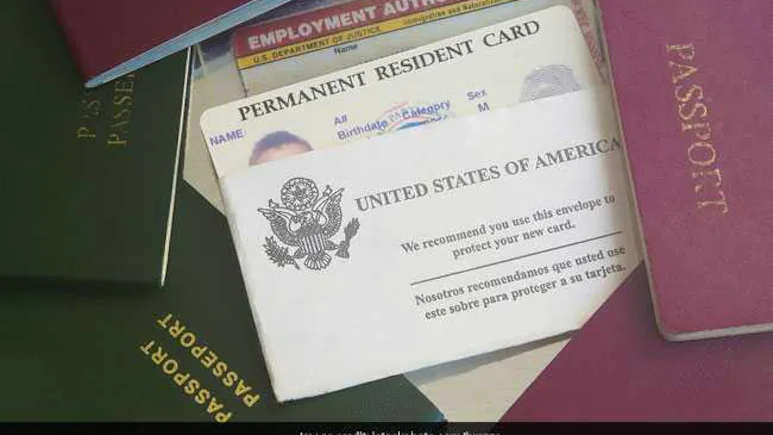Washington, Nov. 15, 2025:
The United States administration is considering a sweeping new immigration directive that could sharply restrict green card approvals and other immigration benefits for citizens of countries already affected by President Donald Trump’s expanded travel ban. The proposal, revealed in internal Department of Homeland Security (DHS) documents obtained by The New York Times, marks a significant intensification of Trump’s immigration agenda.
Under the draft guidance, U.S. Citizenship and Immigration Services (USCIS) officers would be required to treat so-called “country-specific factors” — the same criteria used to justify entry bans — as automatic negative factors when assessing applications for permanent residency, asylum, humanitarian parole and other discretionary benefits. Citizenship applications would be exempt from the rule.
Former senior USCIS officials warn the move represents a dramatic shift. Doug Rand, who served during the Biden administration, described the proposal as “a radical change”, saying the new policy attempts to reach inside the U.S. immigration system and upend expectations for people who are already residing legally in the country.
Michael Valverde, a former USCIS veteran, said it remains unclear whether applicants could realistically overcome these new negative criteria — or whether the proposal amounts to a de facto ban on green cards for people from the targeted countries.
Who Is Affected?
Trump’s June travel ban placed full entry restrictions on citizens of 12 nations — largely in Africa and the Middle East — including Afghanistan, Iran, Libya, Somalia, Sudan, Eritrea, Chad, Congo, Haiti, Equatorial Guinea, Myanmar and Yemen.
Another seven countries face partial restrictions that prevent citizens from settling permanently in the U.S. or receiving tourist or student visas: Burundi, Cuba, Laos, Sierra Leone, Togo, Turkmenistan and Venezuela.
The draft policy indicates that USCIS may cite concerns such as insufficient identity-verification data, weak passport systems and unreliable screening processes in these countries. Critics, however, say the approach unfairly penalizes individuals for systemic failings beyond their control.
Concerns Over Legality and Impact
Immigration experts warn the proposed rules would inevitably increase denial rates and could face legal challenges, especially when applied to individuals already living in the United States.
Sarah Pierce, a former policy analyst at USCIS, said the policy predetermines risk based solely on nationality, adding that applying such restrictions within the U.S. would make the measure “legally vulnerable.”
Who Would Still Be Exempt?
Even under Trump’s original travel restrictions, several groups retained entry rights or special consideration, including:
- Existing U.S. visa holders
- Green-card holders
- Athletes attending the 2026 World Cup or 2028 Olympics
- Afghan and U.S. government Special Immigrant Visa applicants
- Certain religious and ethnic minorities fleeing persecution
- Individuals granted national-interest waivers
However, under the new proposal, many within these groups could still face obstacles when later seeking renewals, green cards or other benefits.
As DHS finalizes its policy considerations, immigrant communities and advocacy groups brace for what could become one of the most consequential changes to U.S. legal immigration in decades.

